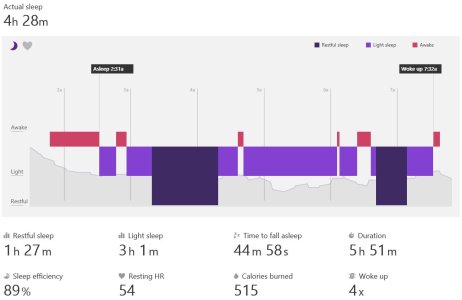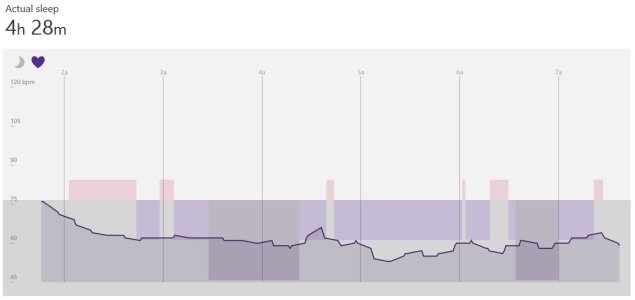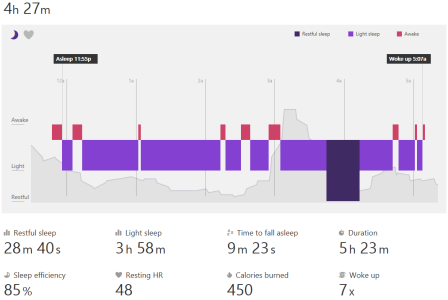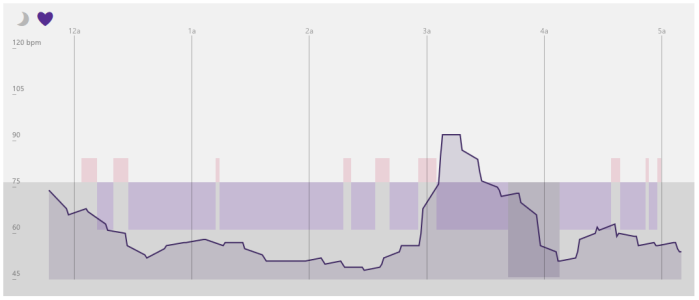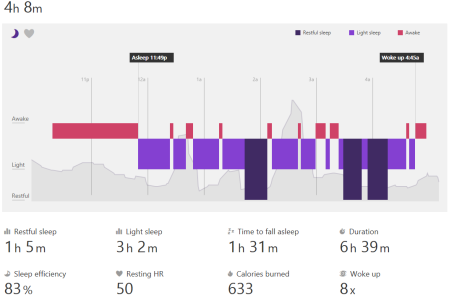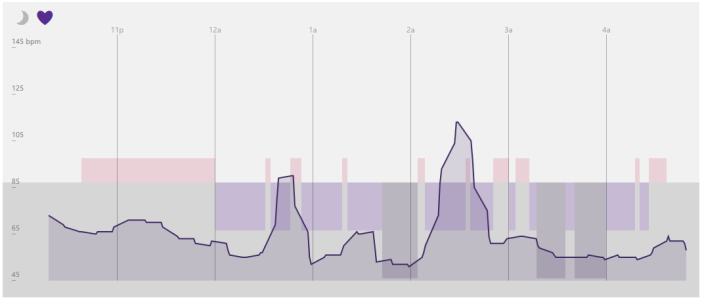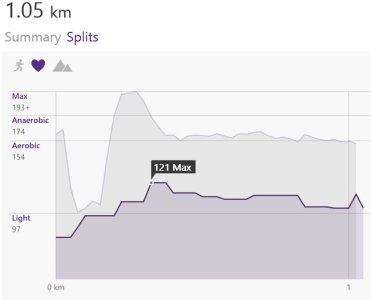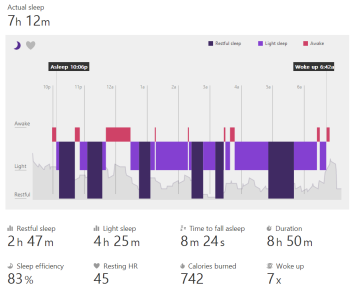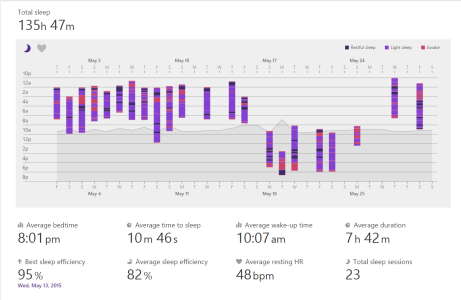gadgetrants
New member
- Nov 12, 2014
- 464
- 0
- 0
Wow, so glad to hear you're liking it! I have to confess that I have NO IDEA what MS means by resting HR. It's my day job to nitpick and microanalyze things like that, so I'm probably over-analyzing, but...the notion that "this is your heartrate after 10 minutes of rest or non-activity" is totally ambiguous in the context of sleep. Does it mean:
- your HR after the very first 10 minutes of sleep (which is surely non-activity)
- the LOWEST HR reading after any 10 minutes of sleep
- some combination of the above, sampled after each first 10 minutes of "restful sleep" (i.e., over multiple sleep/wake cycles)
I can spin off three or four alternatives, but I'll just say this: I initially read "resting" to mean a reasonable average of my LOWEST HR during sleep. But the definition provided by MS doesn't sound anything like that. In fact, the definition only makes sense to me in the context of wakeful time, i.e., "during the day, 'resting HR' means your HR after 10 minutes of doing nothing." I also probably assumed that there are multiple such "resting" events during the day (or during sleep) and the one reported by MS is the lowest. Truthfully, I can't say which it is.
tl;dr Don't put too much faith in Microsoft's use of the term "resting HR" -- it's very ambiguous.
-Matt
- your HR after the very first 10 minutes of sleep (which is surely non-activity)
- the LOWEST HR reading after any 10 minutes of sleep
- some combination of the above, sampled after each first 10 minutes of "restful sleep" (i.e., over multiple sleep/wake cycles)
I can spin off three or four alternatives, but I'll just say this: I initially read "resting" to mean a reasonable average of my LOWEST HR during sleep. But the definition provided by MS doesn't sound anything like that. In fact, the definition only makes sense to me in the context of wakeful time, i.e., "during the day, 'resting HR' means your HR after 10 minutes of doing nothing." I also probably assumed that there are multiple such "resting" events during the day (or during sleep) and the one reported by MS is the lowest. Truthfully, I can't say which it is.
tl;dr Don't put too much faith in Microsoft's use of the term "resting HR" -- it's very ambiguous.
-Matt
Last edited:

